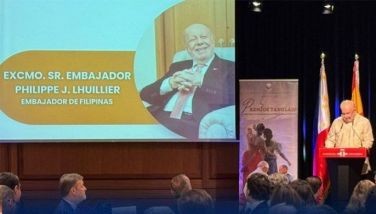CEMEX subsidiary to commence expansion project in Antipolo City
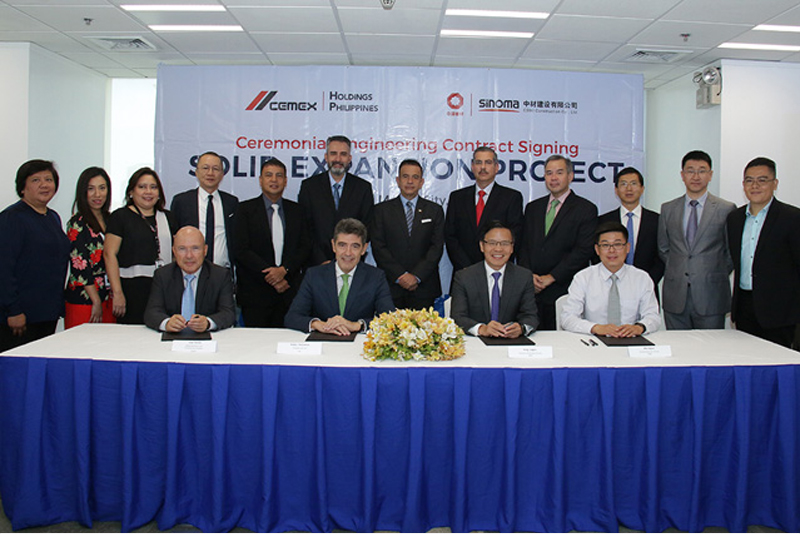
MANILA, Philippines — CEMEX Holdings Philippines (CHP) announced that its subsidiary Solid Cement Corporation (SCC) signed on May 17, 2017 an agreement with CBMI Construction Co. Ltd. to commence the first phase of SCC’s expansion project in Antipolo City.
The contract signing between building materials leader CEMEX and Sinoma International Engineering Co. affiliate CBMI signals the beginning of the design and engineering works of the cement company’s multi-million dollar investment in the Philippines.
The large-scale development which will take place in CEMEX’s Solid Cement Plant involves the construction of a new integrated production line that has an overall capacity of 1.5 million tons of cement.
“I am fully confident that the agreement we are signing today is our first step in realizing our investment to a sustainable future. Be assured that our end-goal here is to give the most benefit to this country and the communities surrounding Solid Cement, because it is part of what we are best at doing — we build a better future,” said CEMEX Global Operations and Technical Executive Vice President Jose Torres.
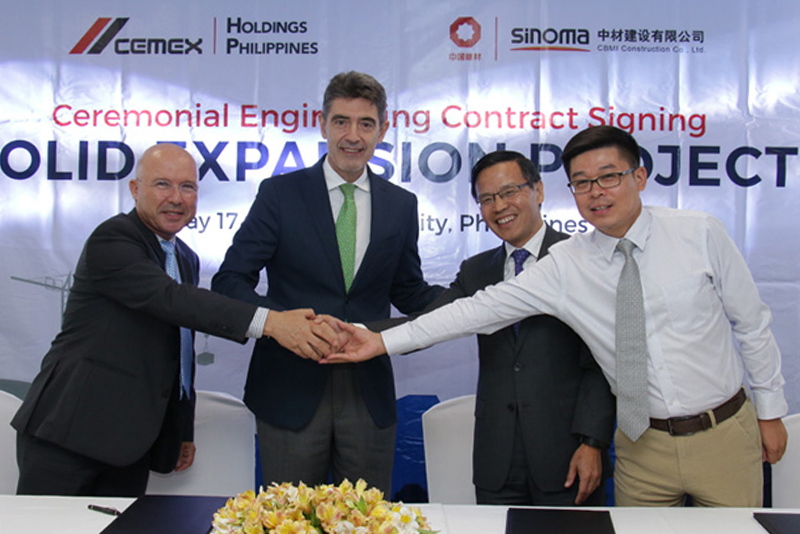
(From left) CEMEX Global Operations and Technical Executive Vice President Jose Torres, CHP President and CEO Pedro Palomino, CBMI Construction Co. Chairman of the Board Tong Laigou, and CBMI Marketing Director Ma Aiguo.
Department of Trade and Industry (DTI) Undersecretary for Trade and Investment Promotion Group (TIPG) Nora Terrado who was present in the event lauded CEMEX’s commitment to nation-building. Terrado added that as the country builds more roads, bridges and other infrastructure, cement is needed.
CEMEX’s Solid Expansion Project comes at an opportune time as the Philippines is experiencing an aggressive construction boom in the Duterte administration. The expansion will significantly support the government’s “Build, Build, Build” program that will boost big-ticket infrastructure projects in the next five years.
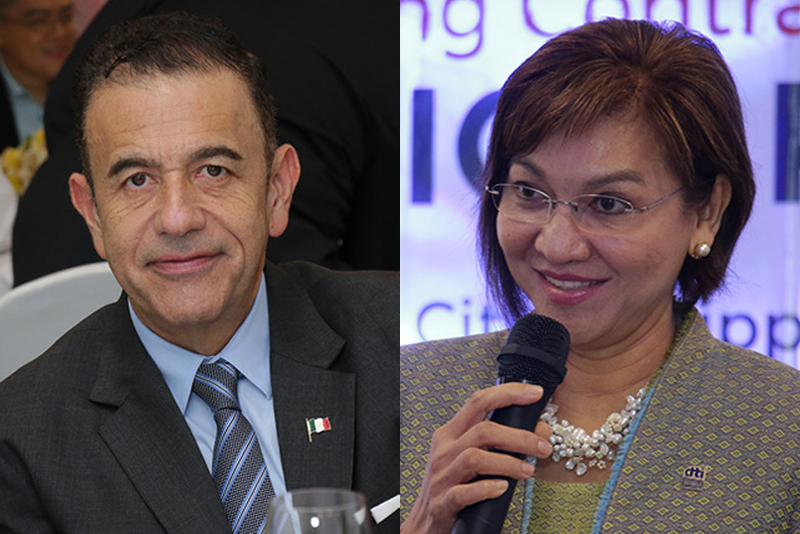
Mexican Ambassador Julio Camarena Villaseñor and DTI Undersecretary Nora Terrado.
“It is indeed with great pride that we now boast of a bright future for the Philippines as we have had a great growth story. And making growth inclusive is our priority by increasing public spending and encouraging investments in various infrastructure projects in what we call ‘Build, Build, Build.’ This reflects the vision of the government to ensure that economic growth is sustainable and that the country will enjoy the benefits of an economy that builds and uplifts our people,” said Terrado.
“Today is a special occasion that tells us how CEMEX as a group is putting interest and attention to the Philippines. It tells us how committed we are to the country’s growth and how committed we are to our investors,” said CHP President and CEO Pedro Palomino.
Palomino shared that when the company went public last year, one of the topics was the Solid Cement expansion project. He stated that the recent ceremonial signing is the company’s way of honoring its word to its investors. “Cement is significant in our growth story. That is why we feel the importance of building capacity locally.”
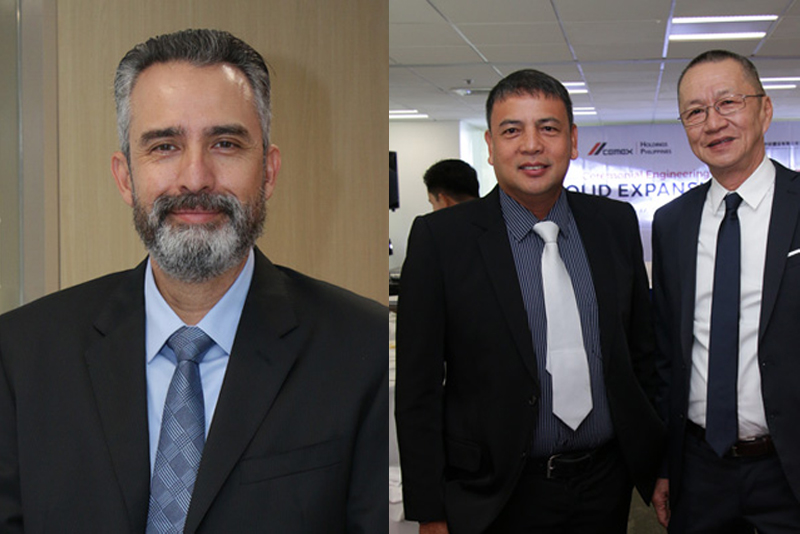
Solid Expansion Project Director for the Philippines Alonso Lopez and SCC Plant Director Normandy Chan and Technical and Operative Support Manager Alberto Afable.
Mexican Ambassador Julio Camarena Villaseñor who also graced the event expressed his support to the initiative. “It’s a pleasure for me to witness the signing of the Solid Expansion Project. In fact, the company that actually started the investments of Mexico in the Philippines is CEMEX,” he said. “CEMEX arrived in 1997 and it has become the leading investor of Mexico in this country.”
CHP is one of the leading cement producers in the Philippines, based on installed annual capacity. CHP produces and markets cement and cement products, such as ready-mix concrete and clinker, in the Philippines through direct sales using its extensive marine and land distribution network. Moreover, CHP’s cement manufacturing subsidiaries have been operating in the Philippines for over 17 years with well-established brands, such as "APO," "Island," and "Rizal," each of which has a multi-decade history in the country.












